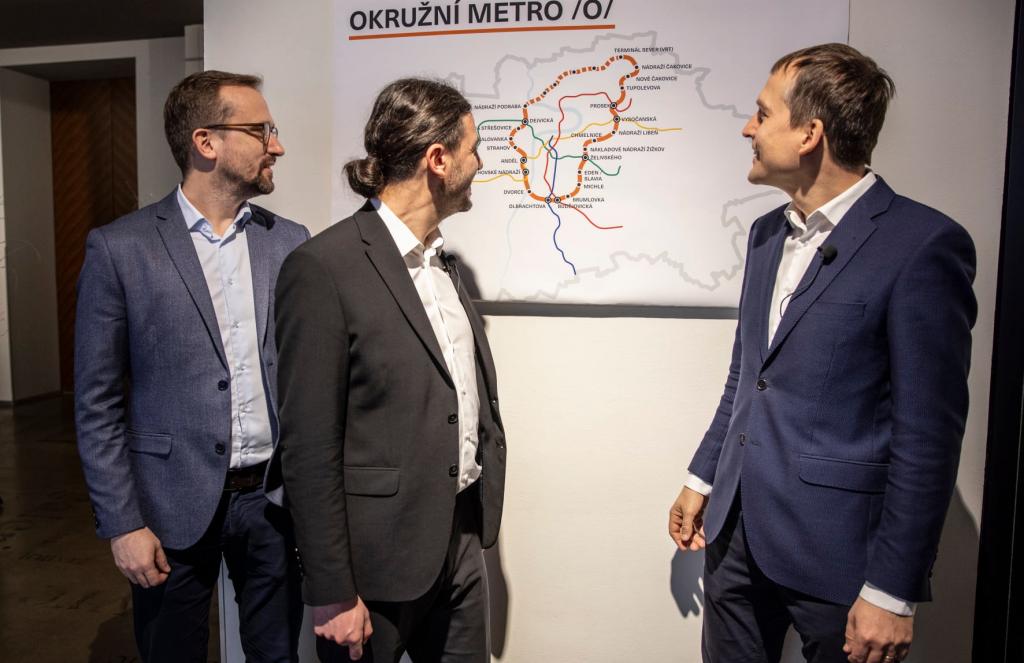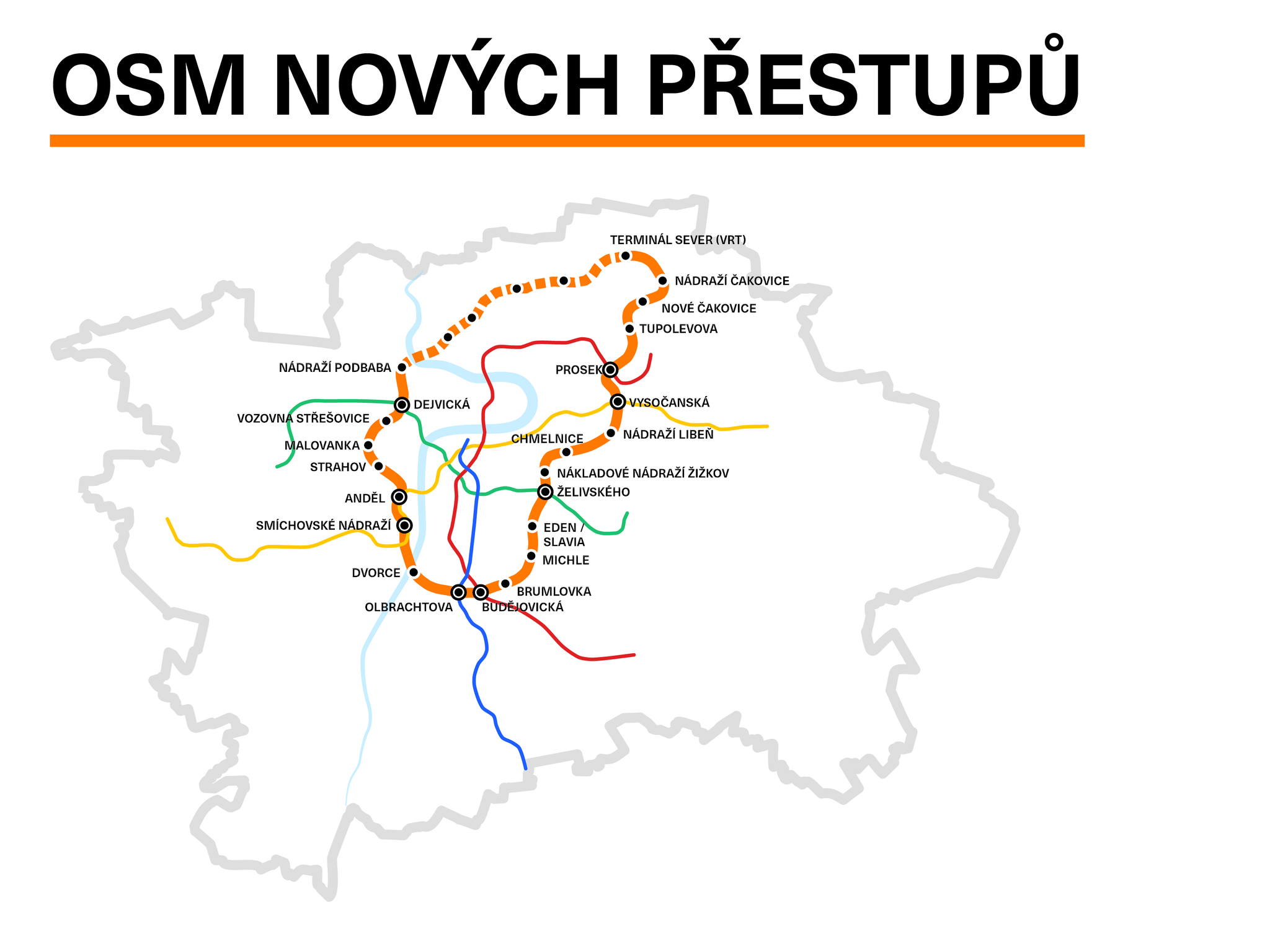Thessaloniki gets ready for its metro launch in November
The underground rapid transit lines have been under construction for almost two decades due to various project delays
 TheMayor.EU logo
TheMayor.EU logo 
Deputy Mayor for Transport Adam Scheinherr presented the plans for the Metro O line, Source: PRAHA SOBĚ on Facebook
It would accommodate the growing population of the Czech capital
On 10 February, Prague’s Deputy Mayor for Transport Adam Scheinherr presented a proposal to develop a circular metro line in the Czech capital. Explaining why the city needs such a line, Scheinherr revealed that Prague’s population is growing at an alarming rate with the Czech Statistical Office forecasting an increase of hundreds of thousands of residents.
“Imagine that the whole of Ostrava or even almost the whole of Bro moves to Prague. […] If we do not start tackling the radical strengthening of underground public transport in time, Prague’s streets will be overwhelmed, and Prague will suffocate. The streets are not inflatable and more cars or, for example, buses cannot fit in them,” Scheinherr stated.
The new metro would have the potential to transport over 150,000 passengers a day and around 100 million each year.
 The Metro O line route (Source: PRAHA SOBĚ on Facebook)
The Metro O line route (Source: PRAHA SOBĚ on Facebook)
According to a press release, the circular line would be 36 kilometres long, with 23 stations. In turn, the Prague metro would reportedly measure 114 kilometres in length and have 111 stations after its competition. Comparing this with the underground transport of other cities, Scheinherr reveals that Munich’s metro covers 103 kilometres and has 93 stations.
It is important to note that hundreds of thousands of people travel to the Czech capital for work. Entering the city, they park their vehicles in the centre or the suburbs, taking up space. With the number of both commuters and residents increasing, the capital believes the Metro O line is crucial in order to ensure that the city does not become blocked up.
In addition to this, it stresses the importance of promoting the use of public transport and encouraging people to leave their cars at home. With Metro O, the influx of cars would substantially reduce as travelling underground would become both quicker and easier.

The underground rapid transit lines have been under construction for almost two decades due to various project delays

Now you can get your wine in Talence by paying directly in Bitcoin

That’s because the state has to spend money on updating the railway infrastructure rather than subsidizing the cost of the popular pass

Rethinking renewable energy sources for the urban landscape

The examples, compiled by Beyond Fossil Fuels, can inform and inspire communities and entrepreneurs that still feel trepidation at the prospect of energy transition

Now you can get your wine in Talence by paying directly in Bitcoin

The 10th European Conference on Sustainable Cities and Towns (ESCT) sets the stage for stronger cooperation between the EU, national and local level to fast track Europe's transition to climate neutrality.

At least, that’s the promise made by the mayor of Paris, Anne Hidalgo

The underground rapid transit lines have been under construction for almost two decades due to various project delays

At least, that’s the promise made by the mayor of Paris, Anne Hidalgo

Hostal de Pinós is located in the geographical centre of the autonomous region

Despite its church-y name, the district has long been known as the hangout spot for the artsy crowds

Urban dwellers across the EU are having a say in making their surroundings friendlier to people and the environment.

Forests in the EU can help green the European construction industry and bolster a continent-wide push for architectural improvements.

Apply by 10 November and do your part for the transformation of European public spaces

An interview with the Mayor of a Polish city that seeks to reinvent itself

An interview with the newly elected ICLEI President and Mayor of Malmö

A conversation with the Mayor of Lisbon about the spirit and dimensions of innovation present in the Portuguese capital














